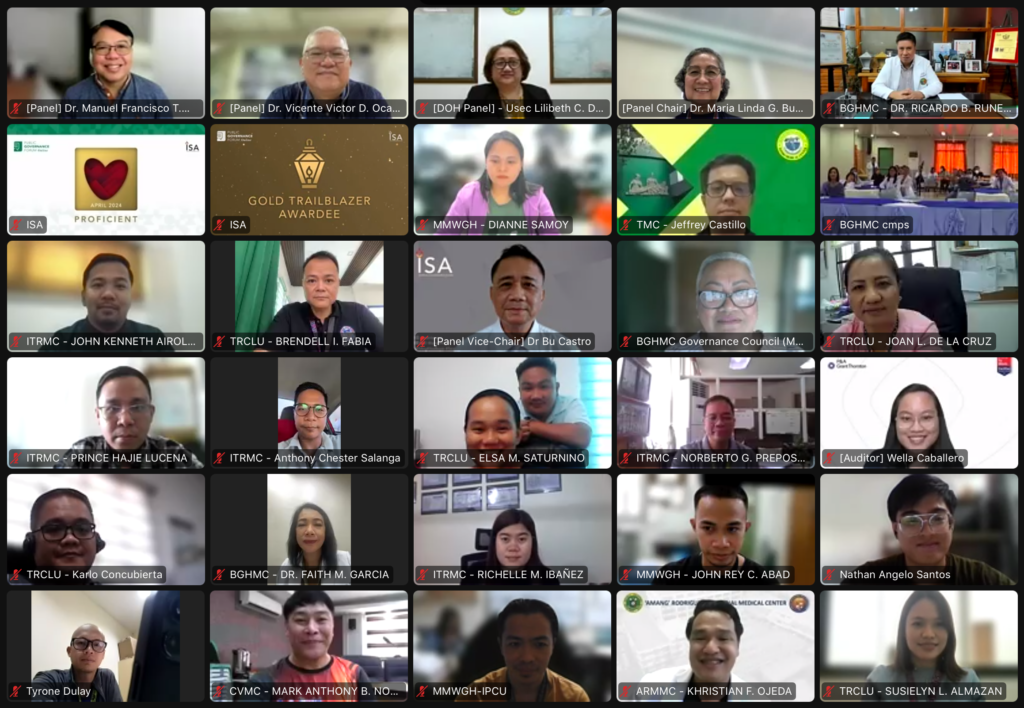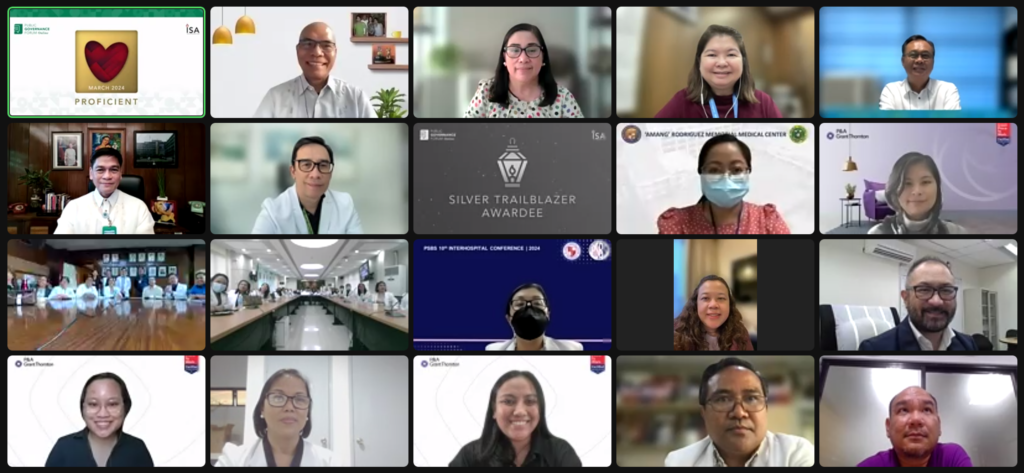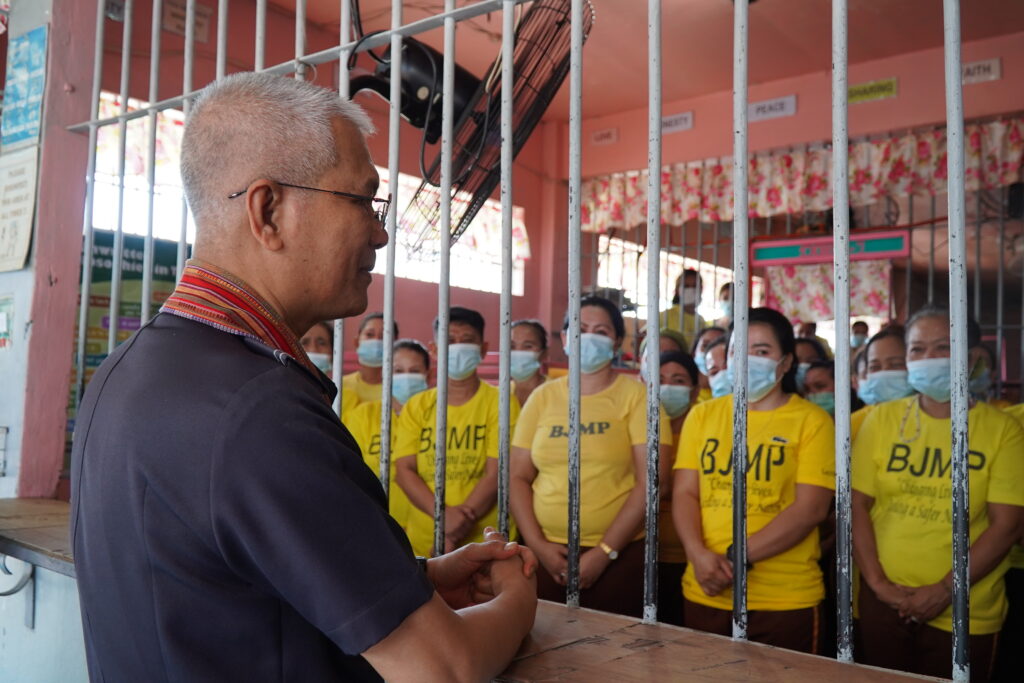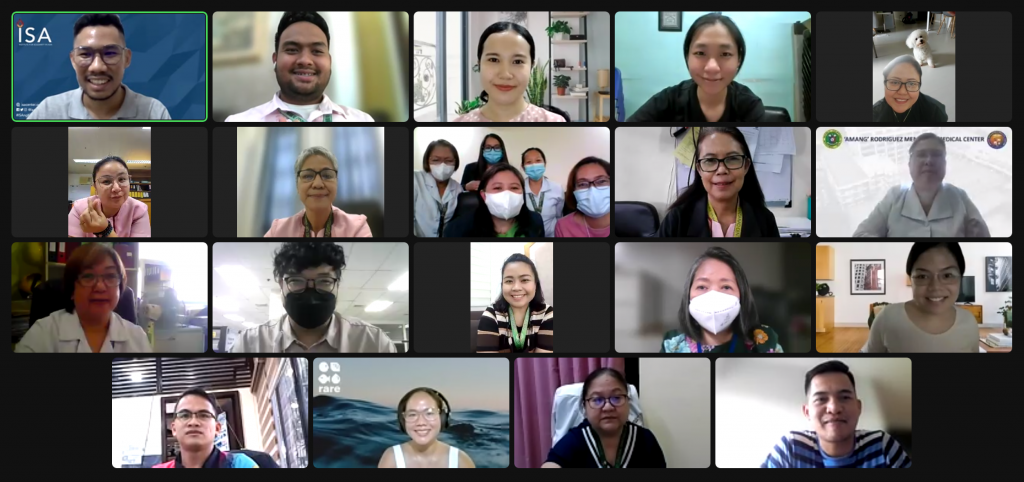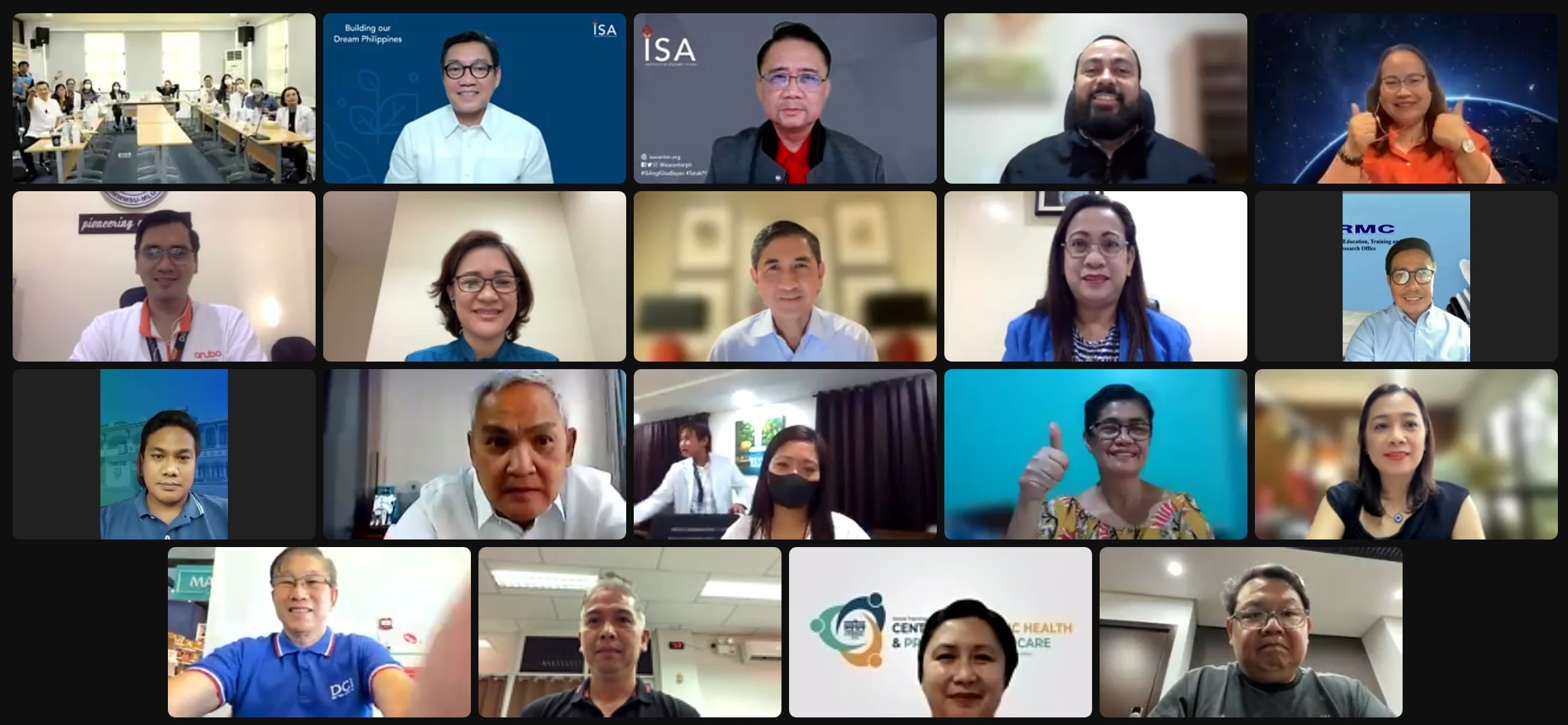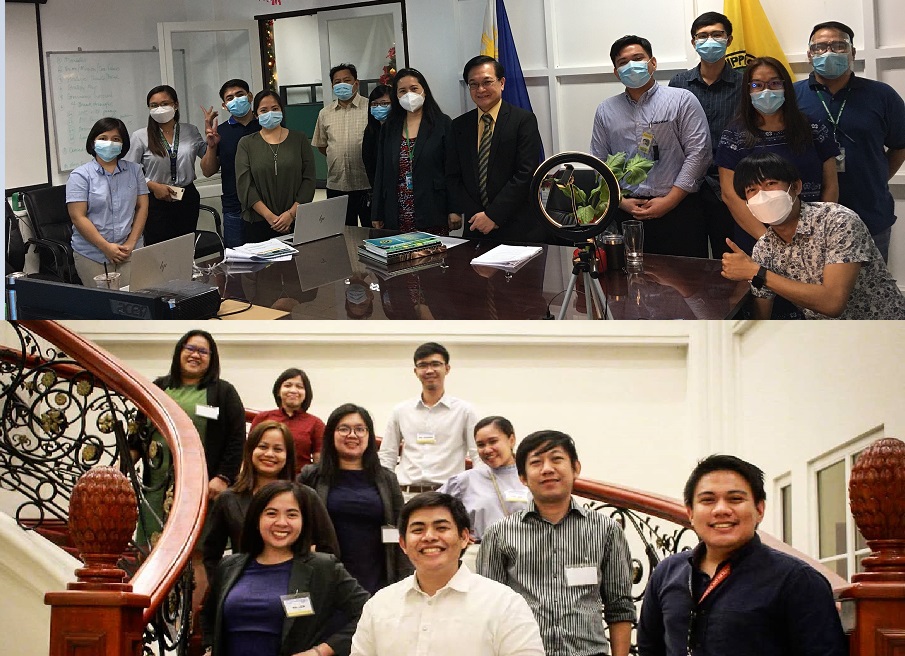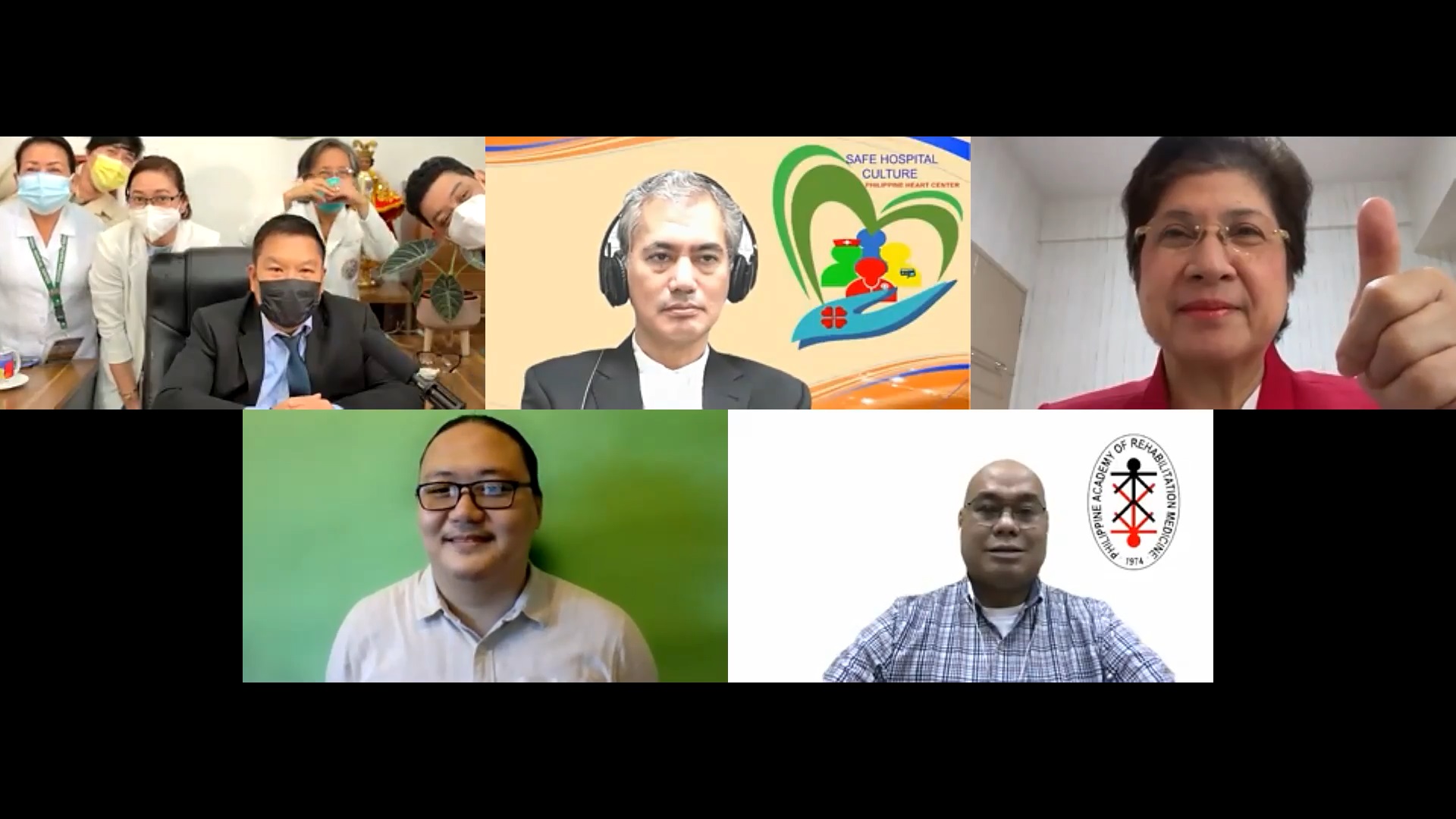The National Kidney Transplant Institute (NKTI), the country’s sole government hospital specialized in renal diseases and transplantation, was conferred the Compliant Status for the successful implementation and execution of the Performance Governance System (PGS) in their strategy.
Dr. Rose Marie Liquete, Executive Director of NKTI, proudly presented the institute’s progress on their long-term strategic plans during their online revalida at the Institute for Solidarity in Asia’s Public Governance Forum last June 25, 2021. She divulged their ultimate vision for NKTI: to position it as the leading center for renal, urologic, and transplantation services in the Philippines, at par with global standards, by 2022.
The institution strives to be the premiere center for renal health, adhering to the highest standards of service, training, and research. To achieve this, the NKTI recalibrated its strategic objectives to align with its vision and began its journey to transform its governance and healthcare processes.
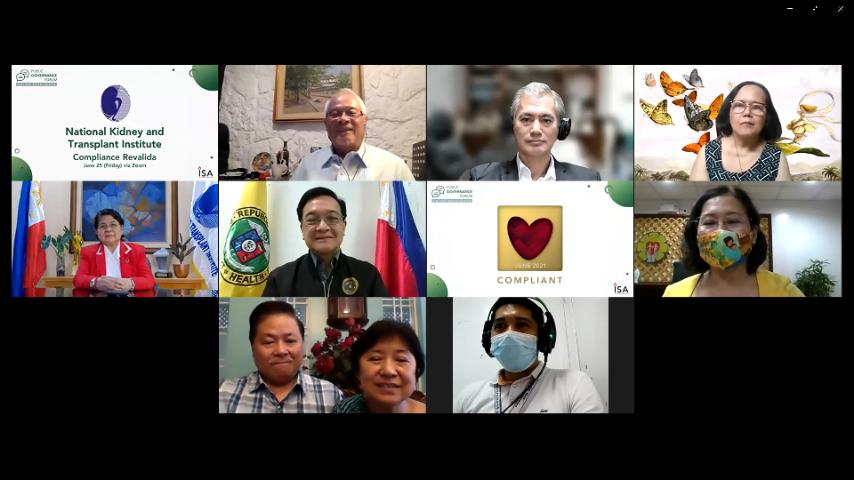
Stories of success
Dr. Liquete highlighted NKTI’s pivotal breakthroughs along their transformation journey, such as the revival of their pioneering stem cell transplant program. While the NKTI spearheaded bone marrow transplants in the country in the ‘90s, the program was lost over the years due to its steep cost and a lack of necessary facilities. However, NKTI’s strategic goal to become a premium transplant center gave impetus for the recent construction of the Human Stem Cell Transplantation and Therapy Unit. This, along with the training of a new batch of healthcare workers, enabled the revival of NKTI’s Human Cell Transplantation operations in 2019.
As a result, NKTI is the first and only government hospital that is equipped with a hematopoietic stem cell transplantation unit. As of 2021, a total of 20 patients have undergone the procedure, with a 95% one-year survival rate.
Moreover, the hospital saw the construction of its Peritoneal Dialysis Warehouse in 2021. Inaugurated last February, its primary purpose is to act as a centralized delivery point that will improve access to peritoneal dialysis (PD) patients in NCR and nearby provinces. Dr. Liquete framed this as a testament to NKTI’s steadfast commitment to their “PD first policy” — establishing PD as the most accessible, affordable, sustainable model of government-funded dialysis therapy.
Further successes include the replacement of the hospital’s 20-year-old I.T. system with a new Hospital Information Management System and the supervision of the establishment of multiple Kidney Satellite Centers across the country.
In the eye of the COVID-19 storm
Included in the list of their accomplishments is their commendable response to the COVID-19 pandemic, for which they have received several international and local awards. The country’s medical facilities struggled against the strain of the pandemic, and NKTI was no exception. The surge of COVID-19 transmission cases in the community was coupled with a similar influx in dialysis patients who were refused by other dialysis centers.
In their presentation, Dr. Liquete detailed the strategies they have adopted to deliver the best of care to COVID patients.
“The Crisis Management Team was activated. Several advisories were issued: limit admission to emergency renal cases only, suspend transplant activities, clinics and training, strengthen the hospital networking, mandatory COVID testing for health workers, patients, and watchers, strengthened supply management, installed improvised negative pressure at the Hot Zones. Recently, we have vaccinated more than 100 kidney transplant patients and more than 90% of their frontliners,” she said.
NKTI also drastically adjusted their physical setup by erecting their COVID Tent Field, an organized cluster of tents to cohort patients, house dialysis procedures, and function as satellite x-ray and operating rooms. They built a temporary modular dialysis facility and an off-site dormitory for health workers.
Commendations from the panel
The multisectoral revalida panel was led by its Chair, Mr. Rex C. Drilon (Institute for Solidarity in Asia) and its Vice-Chair, Dr. Cecilia O. Gan (Philippine Children’s Medical Center). The other esteemed panelists included Dr. Gerardo S. Manzo (Institute for Solidarity in Asia), Usec. Mario C. Villaverde (Department of Health), and Dr. Coralie Therese D. Dimacali (UP-Philippine General Hospital).
Much of the discussion revolved around the NKTI’s Renal Disease Control Program (REDCOP), which functioned as their prevention and advocacy arm, aligned with NKTI’s goal to become the country’s lead advocate for evidence-based prevention of end-stage renal diseases.
In 2018, however, REDCOP was adopted by the Department of Health (DOH) as a national program but despite this, Dr. Liquete assured that the NKTI shall maintain its renal public health unit, which can serve as a model in the implementation of universal healthcare.
Usec. Villaverde commented that the transfer of REDCOP to the DOH widens its scope to the national level, while Dr. Manzo added that the “REDCOP being adopted as a national program is a compliment to NKTI.”
Dr. Liquete’s parting words emphasize that these efforts are a commitment to the next generation, “We will pursue continuous development in achieving our vision and we will try to hit 2040. That long dream of 2040. Most of us will not be here, but I’m sure this will be a legacy to our institute and to our younger generation.”

